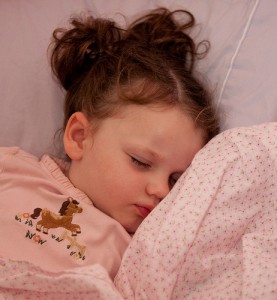Keeping Sleep Sweet – What You Need To Know About Night Terrors
 Since our son was about 18 months old, he has experienced night terrors. At first we had no idea what was happening to him in the middle of the night until I had a conversation with my friend Karen about it and she told me of her son having the same thing… night terrors. For Andrew, it usually happens less than an hour after he goes to bed and then he will generally have multiple episodes of this in the same night. He wakes up crying and is completely inconsolable for up to about 35 minutes. There is nothing we can do to even remotely calm him down. He appears to be awake, but technically isn’t. It is quite a strange event.
Since our son was about 18 months old, he has experienced night terrors. At first we had no idea what was happening to him in the middle of the night until I had a conversation with my friend Karen about it and she told me of her son having the same thing… night terrors. For Andrew, it usually happens less than an hour after he goes to bed and then he will generally have multiple episodes of this in the same night. He wakes up crying and is completely inconsolable for up to about 35 minutes. There is nothing we can do to even remotely calm him down. He appears to be awake, but technically isn’t. It is quite a strange event.
Night terrors are most common in young children, usually ages 3-6, however they can occur in younger children and also in older children and adults. There are many misconceptions about night terrors, mostly that they are just really bad nightmares, but in reality they are very different events. Nightmares are bad dreams that you can wake up remembering. Night terrors are commonly described as seeming to wake up screaming or crying, appearing awake, but confused, not remembering the incident, and being inconsolable for 5-30 or more minutes. A child experiencing night terrors will suddenly fall back to sleep as quickly as they appeared to have waken.
There are apparently different things that can trigger night terrors in children. The most common thing is letting the child get over-tired or over-stressed. There are also many different ways people choose to deal with their child’s night terrors. For us, sitting with Andrew, rubbing his back or legs and hugging him sometimes helps soothe him. Other times, it’s best for us not to touch or talk to him. If your child has a tendency to have night terrors, make sure to let any babysitters know how to best handle them.
The important thing to remember is not to treat the child as if he/she is acting up. This is an involuntary response that they don’t even know is happening. Being calm, finding what helps soothe your child at that time, and trying to prevent letting your child get totally wiped out will all help the situation!
Does your child experience night terrors? How do you help them during an episode?
Photo Courtesy of deltaMike
Share the fun: Email + Del.icio.us + Digg + Technorati




My son experienced these on occasion between the ages of 2-4, although there was never more than 1 episode a night, it wouldn’t last more than 15 minutes, and there was no screaming involved – just crying while he was sitting up in his bed rocking forward and back or he’d be pacing his room.
Once my son hit the 4½ yr. mark, he started coming out of his room and on rare occasions we found him downstairs. Now that was frightening! That was when our pediatrician classified it as sleepwalking and we should put a safety cover on his door or a bell to notify us when he came out of his room. He still has these sleepwalk episodes on rare occasion.
Our daughter (now nearly 20!) had the most awful night terrors for about three months when she was three. It was pretty horrible because there really wasn’t anything we could do for her. If we tried to hold her or touch her, she got even more hysterical. Each episode lasted between 20 and 30 minutes, and we’d know it was over when she stopped screaming and started crying – then we could hold her and calm her down and get her back to sleep. She never remembered having these episodes, which was a blessing, but it completely wore us down during the period that they went on.
I know first-hand what the term “hand-wringing” refers to, because I did a lot of it! But we learned to sit quietly and wait for the episode to pass, watching to make sure she didn’t hurt herself (she never did, thank God), and comforting and snuggling her after the episode had passed. In the end, I think they were much harder on us than they were on her – there’s something particularly horrible about being powerless in the face of your child’s terror and panic. We were thankful for a really good pediatrician who helped reassure us, and we were especially thankful that the terrors passed completely after about three months.
So: hang in there, parents! Make sure you check with your pediatrician to make sure there’s nothing else going on, but know that this too shall pass and your child will weather the experience (probably better than you will!).
Thanks ladies for sharing your experiences! It’s comforting to know that others have gone through it too and just knowing that our children don’t really “realize” what they are going through brings a little peace as well!!! Francesca made a good point, if you are truly worried about the episodes your child experiences, it’s a good idea to talk to your pediatrician about them!!!